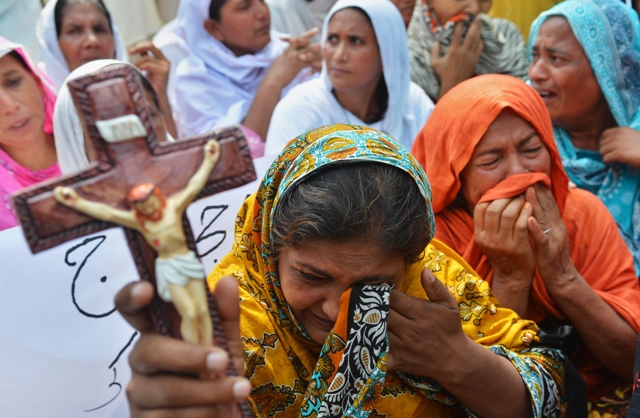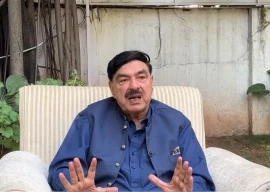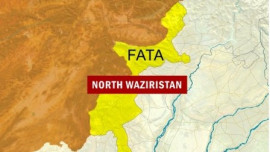
Hearing constitutional petitions against the 18th and 21st Constitutional Amendments, a 17-judge bench headed by Chief Justice Nasirul Mulk questioned how the country would go about declaring itself a secular state if there is a popular demand for change.
The chief justice questioned whether such a process could be carried out through a constituent assembly. "How can the constituent assembly be formed at present stage?”
"If a political party whose manifesto supported such a declaration comes to power, how does that party plan on making the country secular?" Justice Mian Saqib Nisar questioned.
Proposing a solution, Hamid Khan, counsel for different bar associations suggested that it could be carried out through a referendum.
Justice Asif Saeed Khosa also questioned whether parliament had the power to pass an amendment to the Constitution which would declare the country secular.
Taking a page out of history, Justice Khosa said the country was created in the name of Islam in 1947 and later reaffirmed its commitment to being an Islamic state in 1949 with the Objectives Resolution, which was also supported by East Pakistan. However, Khosa pointed out how East Pakistan (now Bangladesh) went on to declare their country a secular state after partition. Later, Bangladesh attempted to declare the country an Islamic state through a constitutional amendments, but the Bangladesh Supreme Court annulled the amendment.
Citing the example of Turkey, Justice Khosa added people and their ideologies change with the passage of time. However, Jutsice Khawaja believed changes in Bangladesh and Turkey were rooted in revolution.


1731655243-0/BeFunky-collage-(61)1731655243-0-165x106.webp)


1731651715-0/Express-Tribune-(1)1731651715-0-270x192.webp)



1731648084-0/Untitled-design-(57)1731648084-0-270x192.webp)







COMMENTS (44)
Comments are moderated and generally will be posted if they are on-topic and not abusive.
For more information, please see our Comments FAQ